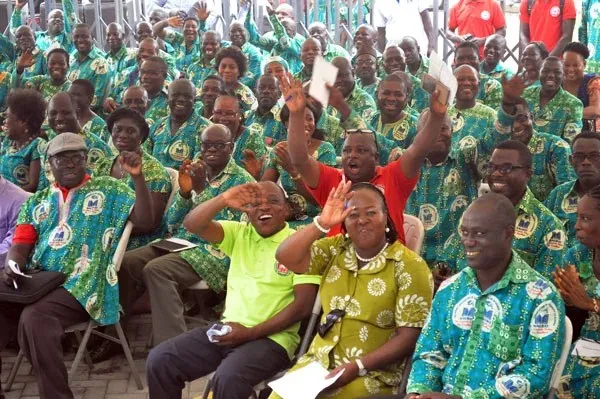The National Association of Graduate Teachers (NAGRAT) is facing internal dissent as a group of concerned members alleges that the association’s leadership operates as a cartel, manipulating the constitution to stifle competition and marginalize ordinary members. These accusations paint a picture of an organization where the leadership prioritizes self-preservation over democratic principles, undermining the very foundation of a union meant to represent and advocate for its members. This internal conflict raises questions about the association’s ability to effectively represent its members’ interests and advocate for improved working conditions if its own internal governance is perceived as undemocratic and self-serving.
The core of the discontent stems from recent constitutional amendments that, according to the concerned members, have erected insurmountable barriers for ordinary members and even school representatives to challenge the incumbent leadership in elections. This alleged manipulation of the constitutional framework is seen as a deliberate strategy to insulate the current leadership from electoral challenges, effectively creating a closed system that perpetuates their power. The introduction of “circuit representatives” is highlighted as a particularly problematic amendment, as it reportedly disqualifies school representatives from participating in zonal elections, further limiting the pool of potential candidates and concentrating power within a select few. This perceived manipulation of the electoral process has created a sense of disillusionment and disenfranchisement among the rank-and-file members who feel their voices are being silenced and their right to participate in the democratic process within their own union is being denied.
The concerned members express frustration not only with the leadership’s actions but also with the apparent apathy of the general membership. They cite the lack of response to the posting of the amended constitution on a zonal WhatsApp platform as evidence of a culture of passivity and a lack of critical engagement within the association. This silence, they argue, allows the leadership to operate unchecked and further consolidate its hold on power. The lack of open discussion and debate regarding such significant changes to the association’s governing document raises concerns about the overall health of the organization and the level of engagement of its members in shaping its future.
The accusations of cartel-like behavior within NAGRAT’s leadership point to a deeper issue of transparency and accountability within the organization. The concerned members’ call for greater transparency in decision-making processes is crucial for rebuilding trust and ensuring that the association truly represents the interests of all its members. The absence of transparency fosters an environment of suspicion and distrust, where decisions are perceived as being made behind closed doors and without the input of those they are meant to serve. A transparent and accountable leadership is essential for a healthy and functioning union, ensuring that decisions are made in the best interests of the members and not for the benefit of a select few.
The current situation within NAGRAT highlights the importance of active member participation in union affairs. The concerned members’ plea for greater involvement from the rank-and-file is a call for a more democratic and representative union, where every member has a voice and the leadership is truly accountable to its constituents. Apathy and disengagement from the membership can create a vacuum that allows for the consolidation of power by a select few, leading to the very issues of undemocratic practices and self-serving leadership that the concerned members are raising. Active participation, on the other hand, ensures that the union remains responsive to the needs and concerns of its members and that the leadership acts in their best interests.
The allegations against NAGRAT’s leadership underscore the fundamental importance of democratic principles within trade unions. A union’s strength lies in its ability to represent the collective voice of its members, and this can only be achieved through a transparent and democratic internal governance structure. The concerns raised by the dissenting members, if proven true, represent a serious challenge to the integrity and effectiveness of NAGRAT as a representative body for graduate teachers. The future of the association depends on its ability to address these concerns, restore trust among its members, and ensure that its leadership operates in a truly democratic and accountable manner. Failing to do so risks further alienating its members and undermining its ability to effectively advocate for their interests.


